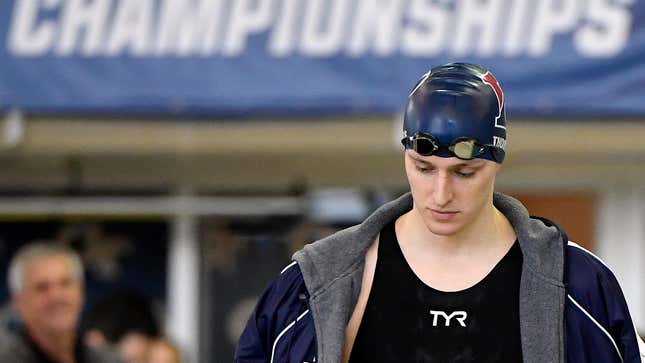The Attack on Trans Women Athletes Was Always Bigger—and More Menacing—Than Sports
FINA and the International Rugby League are the latest governing bodies to ban trans women from competing in women’s sports at an elite level.
In Depth

In the last four days alone, two international governing bodies have banned trans women from competing in women’s sports.
On Sunday, FINA (Fédération Internationale De Natation), the swimming federation recognized by the International Olympic Committee, said that trans women who had experienced any part of “male puberty” before age 12 could not compete in women’s events. And on Monday, the International Rugby League (IRL) announced that until further research emerges, trans women are not allowed to play in women’s international rugby league matches.
Magnified by the moral panic around the successes of trans athletes like University of Pennsylvania swimmer Lia Thomas and Olympic weightlifter Laurel Hubbard, the anti-trans arguments bulldozing their way through women’s sports purport to be about “fairness.” But they’re not all that different from the same exclusionary principles that kept women from voting, working, choosing abortion, or participating in sports in the first place: It’s just another form of hyper-targeted misogyny.
FINA’s new inclusion policy says the organization will establish a new “open” category for athletes who identify as women but don’t qualify to compete against cis women according to the new guidelines. Instead of affirming and prioritizing the lived experience of athletes, including intersex athletes who don’t tidily fit into society’s cisgender boxes, the sport opted to sideline trans athletes in favor of protecting the “fairness” and safety of cis athletes who have experienced but a fraction of the marginalization that trans women have dealt with. Although the sport can say it has created a new arena of competition for trans athletes, as opposed to banning them outright, the message is more or less the same: Trans women can compete, as long it’s not with us.
-

-

-

-

-

-

-

-

-

-

-

-

-

-

-

-

-

-

-

-

-

-

-

-

-

-

-

-

-

-

-

-

-

-

-

-

-

-

-

-








































